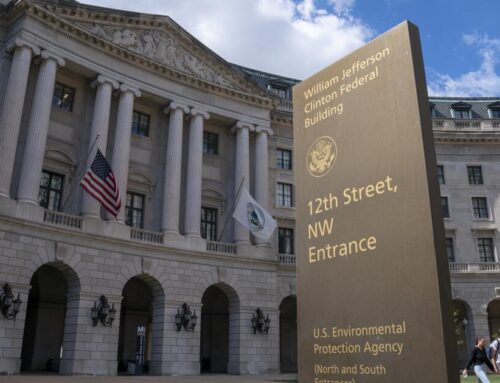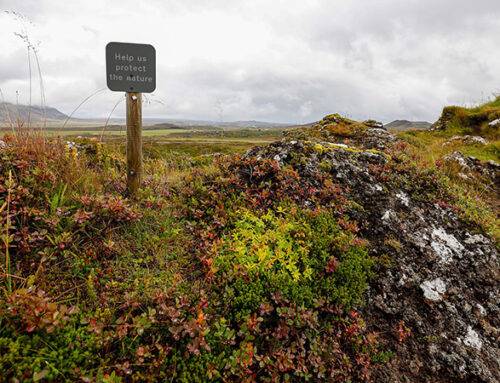Dominion Energy, environmental groups clash over Chesterfield gas plant
September 30, 2025
A four-day hearing at the State Corporation Commission last week — typically a dry affair for lawyers, stakeholders and energy regulation nerds — drew widespread attention, with over 3,300 written comments received and more than a full business day dedicated to hearing public witnesses.
The hearing was another step in determining whether Dominion Energy will get the permits it needs to build the Chesterfield Energy Reliability Center, a 944-megawatt natural gas peaker plant tentatively slated to open in 2029.
In this case, the SCC is deciding whether to issue a Certificate of Public Convenience and Necessity. It has to decide whether the plant would be needed to meet future energy demand, and if it could do so at a reasonable cost to Dominion’s customers and without major environmental harms.
The company’s argument is straightforward: Given rapidly growing demand in Virginia, power plant retirements in the commonwealth and along the broader grid run by PJM Interconnection, as well as the company’s ability to get the plant online relatively quickly, CERC is a shoo-in for the permit.
“CERC will help meet the growing supply needs of the company’s customers, particularly during times of peak demand, promoting reliability and energy security and complementing the company’s growing portfolio of renewable energy assets,” said Joe Reid, an attorney representing Dominion, during his opening statement.
Environmental groups opposed to the plant have their own arguments. They say solar and battery storage would be cheaper and just as effective at meeting energy demand, and that the SCC has new responsibilities. That’s due to the Virginia Clean Economy Act, which requires Dominion to retire its carbon-emitting power plants by 2045 and meet energy efficiency standards each year — which the commission has previously said the company failed to do.
“This case will create a precedent for whether the statutory requirements of the VCEA will be rigorously enforced,” said attorney Claire Horan, representing the Sierra Club.
Much of the debate is around competing models of the state’s future energy system, completed by third parties hired by Dominion and environmental groups.
Reid explained that without new gas generation, modelling by the Brattle Group shows energy supply shortfalls by 2030.
“This results in lights out during times of severe weather, the coldest and hottest days of the year,” Reid said.

Shaban Athuman
/
VPM News
Rachel James, a Southern Environmental Law Center attorney representing the nonprofit Appalachian Voices, said the SCC should reject Dominion’s reliability analysis as flawed, citing testimony from Telos Energy that argues the company’s analysis doesn’t take advantage of cheaper tools such as virtual power plants. VPPs aggregate power supplied by smaller sources — such as rooftop or community solar.
James also argued that the commission’s responsibility to uphold Virginia environmental justice laws is key, given cumulative impacts to the area’s residents from the coal plant that operated on the same property until 2023.
“The gas plant is likely to have disproportionate impacts on residents in communities of color in Chesterfield County and beyond,” James said. “Gas plants are not pollution free. They emit large quantities of fine particulates, a pollutant often referred to as PM2.5.”
Commission staff testified that they are not opposed to CERC receiving the commission’s approval, given the gap between Dominion’s generation capabilities and energy demand.
“The Commission could accept that the risk to reliability is sufficient, and that given the timeline and circumstances, a potentially imperfect intermediate step in resolving the Company’s capacity and reliability needs is better than no step at all,” wrote commission staffer Steven Smith in prefiled testimony.
Staff also questioned the independence of the analysis completed by the Brattle Group and criticized Dominion’s process in selecting CERC as the best project to meet demand.
Commission attorney Andrew Major noted that the final call rests with the SCC judges: “It is ultimately the commission’s decision to determine if that capacity gap qualifies as a sufficient threat to reliability to meet the statutory criteria needed to approve the project.”
Consumer protection attorneys from Virginia Attorney General Jason Miyares’ office support Dominion’s proposal and have urged the SCC to issue the permit.
Attorneys are now working on post-hearing briefs. The commission could make a decision in the coming months.
Dominion’s proposal is also currently under review by the Department of Environmental Quality — that state agency recently extended its public comment period on the plant until Oct. 23.
Editor’s note: SELC is a VPM sponsor.
Search
RECENT PRESS RELEASES
Related Post



